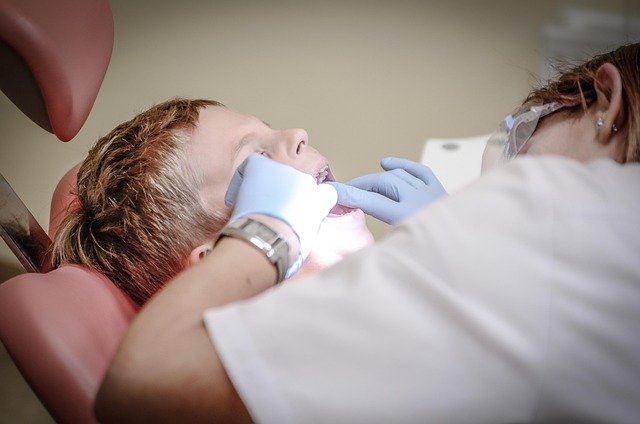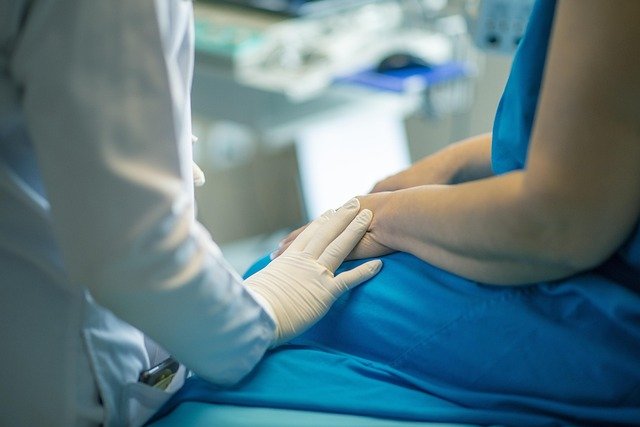Dental implants through HSE dental scheme: key facts to know
Understanding how the HSE dental scheme works in Ireland can help you make informed decisions about dental care options. While dental implants represent a significant investment in oral health, navigating public health services and eligibility requirements requires careful consideration. This article examines the HSE dental scheme structure, what services are typically covered, and important factors to consider when exploring implant options through public healthcare channels in Ireland.

Dental implants have become an increasingly popular solution for replacing missing teeth, offering long-term benefits for oral health and quality of life. For residents in Ireland, understanding how the Health Service Executive dental scheme operates is essential when considering treatment options. The HSE provides various dental services, but the scope and availability of treatments like implants depend on specific criteria and circumstances.
What are HSE dental implants?
Dental implants are artificial tooth roots, typically made from titanium, that are surgically placed into the jawbone to support replacement teeth or bridges. They provide a stable foundation for fixed or removable prosthetic teeth designed to match natural teeth. The implant process generally involves multiple stages, including initial consultation, surgical placement, healing period, and finally attachment of the crown or prosthetic tooth.
Within the HSE framework, dental implants are not routinely provided as part of standard dental care services. The HSE dental services primarily focus on essential treatments such as examinations, extractions, fillings, and dentures for eligible patients. Implant procedures are typically considered specialist treatments and are not widely available through public dental services. In exceptional circumstances, implants may be considered for patients with specific medical conditions or following trauma, but these cases require specialist referral and assessment.
HSE dental scheme: an overview
The HSE operates several dental treatment schemes in Ireland, each designed for different population groups. The Dental Treatment Services Scheme (DTSS) provides basic dental care to medical card holders, covering examinations, fillings, extractions, and dentures. The Treatment Benefit Scheme, administered by the Department of Social Protection, offers dental benefits to insured workers and pensioners, including examinations, fillings, and extractions.
For children, the HSE provides dental care through school-based screening programs and community dental services. Emergency dental services are available through dental surgeons and hospitals for urgent cases. However, cosmetic procedures and advanced treatments like implants generally fall outside the scope of these public schemes. Patients seeking implant treatment typically need to access private dental services, though some public hospital maxillofacial units may provide implants in specific medical cases.
Key eligibility criteria for dental implants
Eligibility for any dental treatment through HSE services depends on several factors. Medical card holders qualify for the DTSS, which covers essential dental treatments but not implants under normal circumstances. Insured workers contributing to PRSI may access the Treatment Benefit Scheme for basic dental care.
For implant consideration within public services, patients generally need to meet specific medical criteria. This might include cases involving significant facial trauma, congenital conditions affecting jaw development, or medical conditions that make conventional dentures impossible to use. Referrals from general dentists or medical practitioners to hospital-based maxillofacial units are typically required for assessment.
The assessment process evaluates both medical necessity and suitability for implant treatment. Factors considered include overall health status, bone density and quality, oral hygiene practices, and whether less invasive alternatives have been explored. Even when medical need is established, waiting times for public hospital services can be substantial.
Cost considerations and private treatment options
Since dental implants are rarely covered by HSE dental schemes, most patients in Ireland pursue private treatment. Understanding the financial implications is crucial for planning purposes. Private dental implant costs vary significantly based on complexity, location, and the specific clinic or practitioner.
| Treatment Component | Provider Type | Cost Estimation |
|---|---|---|
| Single implant with crown | Private dental clinic | €2,000 - €3,500 |
| Multiple implants (per implant) | Private dental clinic | €1,800 - €3,000 |
| Full arch restoration (per arch) | Specialist implant clinic | €8,000 - €15,000 |
| Bone grafting (if required) | Private/hospital service | €500 - €2,000 |
| Initial consultation and imaging | Private dental clinic | €100 - €300 |
Prices, rates, or cost estimates mentioned in this article are based on the latest available information but may change over time. Independent research is advised before making financial decisions.
Many private clinics offer payment plans or financing options to help manage costs. Some private health insurance policies may provide partial coverage for implant treatment, though coverage levels vary significantly between providers and policy types. Reviewing insurance terms and discussing payment options with dental providers before committing to treatment is advisable.
Alternative treatments available through HSE services
For patients who cannot access implant treatment through public services or afford private care, the HSE dental schemes provide alternative tooth replacement options. Dentures remain the primary solution offered through the DTSS for medical card holders who have lost teeth. These removable appliances can replace single teeth, multiple teeth, or full arches.
Bridges may be available in some circumstances, though coverage varies depending on the specific scheme and clinical situation. Dental surgeons working within HSE schemes can discuss suitable alternatives based on individual oral health needs and scheme entitlements. While these alternatives may not offer the same stability or longevity as implants, they provide functional tooth replacement solutions accessible through public healthcare.
Making informed decisions about dental implant treatment
Navigating dental care options in Ireland requires understanding both public service limitations and private treatment pathways. For most people considering dental implants, private treatment represents the primary route. Researching qualified practitioners, comparing treatment plans and costs, and exploring financing options are important steps in the decision-making process.
Consulting with a general dentist provides an opportunity to discuss whether implants are clinically appropriate and to receive referrals to specialist practitioners if needed. Obtaining multiple opinions and detailed treatment plans helps ensure informed choices. For those with medical cards or treatment benefit entitlement, maximizing available HSE dental services for routine care can help maintain overall oral health while planning for more advanced treatments privately.
Understanding the structure of HSE dental schemes, realistic expectations about public service coverage, and thorough research into private options enables better planning for dental implant treatment in Ireland.




